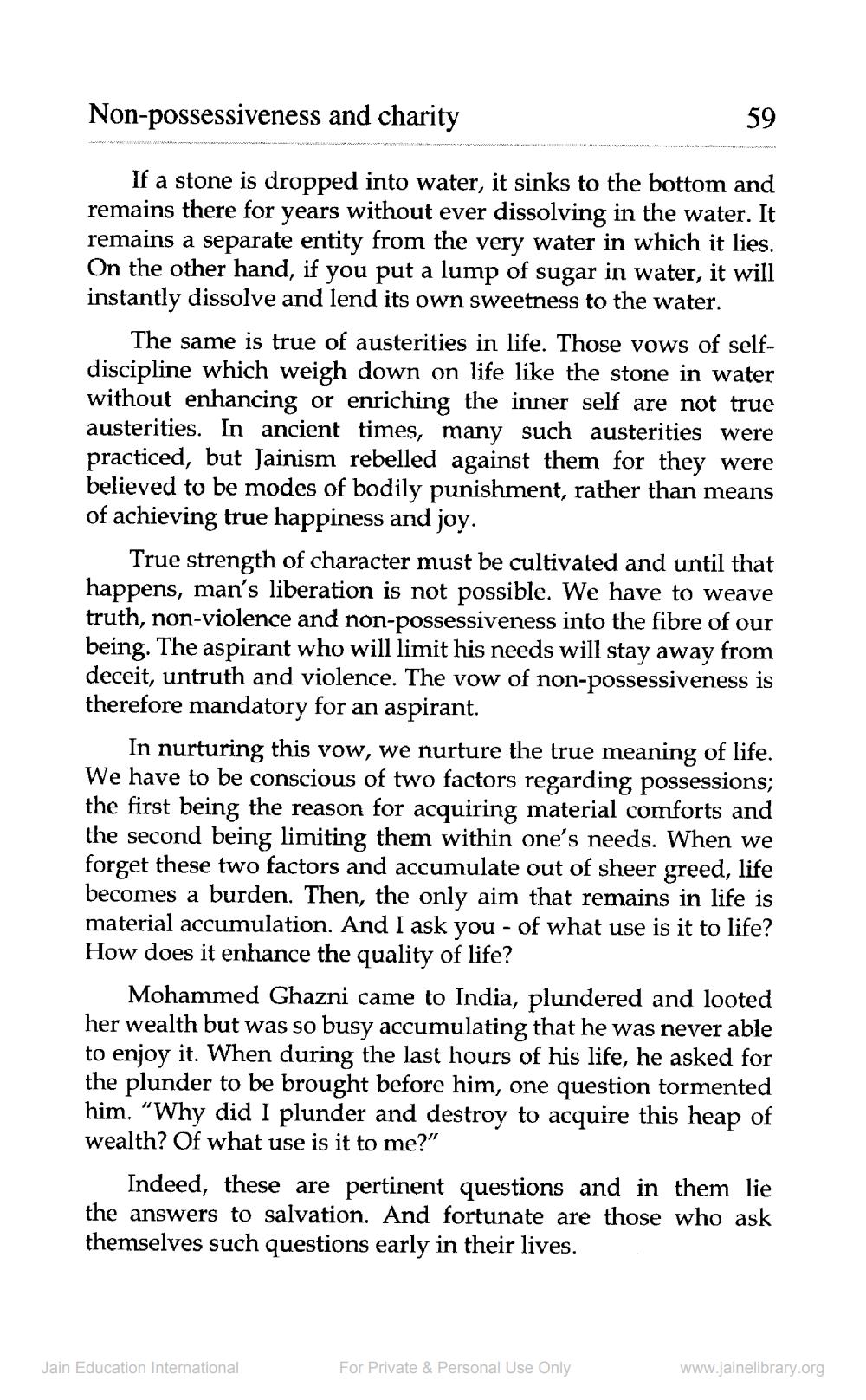________________
Non-possessiveness and charity
If a stone is dropped into water, it sinks to the bottom and remains there for years without ever dissolving in the water. It remains a separate entity from the very water in which it lies. On the other hand, if you put a lump of sugar in water, it will instantly dissolve and lend its own sweetness to the water.
The same is true of austerities in life. Those vows of selfdiscipline which weigh down on life like the stone in water without enhancing or enriching the inner self are not true austerities. In ancient times, many such austerities were practiced, but Jainism rebelled against them for they were believed to be modes of bodily punishment, rather than means of achieving true happiness and joy.
59
True strength of character must be cultivated and until that happens, man's liberation is not possible. We have to weave truth, non-violence and non-possessiveness into the fibre of our being. The aspirant who will limit his needs will stay away from deceit, untruth and violence. The vow of non-possessiveness is therefore mandatory for an aspirant.
In nurturing this vow, we nurture the true meaning of life. We have to be conscious of two factors regarding possessions; the first being the reason for acquiring material comforts and the second being limiting them within one's needs. When we forget these two factors and accumulate out of sheer greed, life becomes a burden. Then, the only aim that remains in life is material accumulation. And I ask you - of what use is it to life? How does it enhance the quality of life?
Mohammed Ghazni came to India, plundered and looted her wealth but was so busy accumulating that he was never able to enjoy it. When during the last hours of his life, he asked for the plunder to be brought before him, one question tormented him. "Why did I plunder and destroy to acquire this heap of wealth? Of what use is it to me?"
Indeed, these are pertinent questions and in them lie the answers to salvation. And fortunate are those who ask themselves such questions early in their lives.
Jain Education International
For Private & Personal Use Only
www.jainelibrary.org




